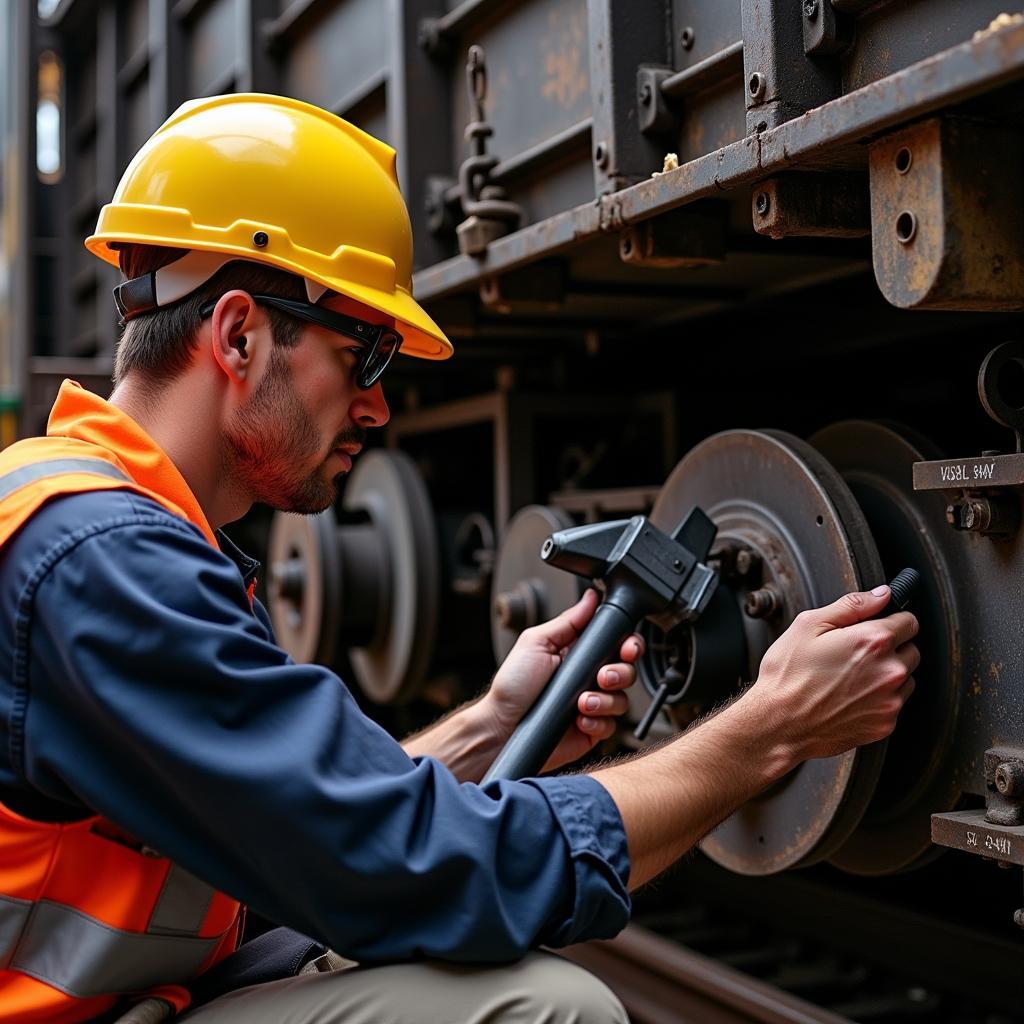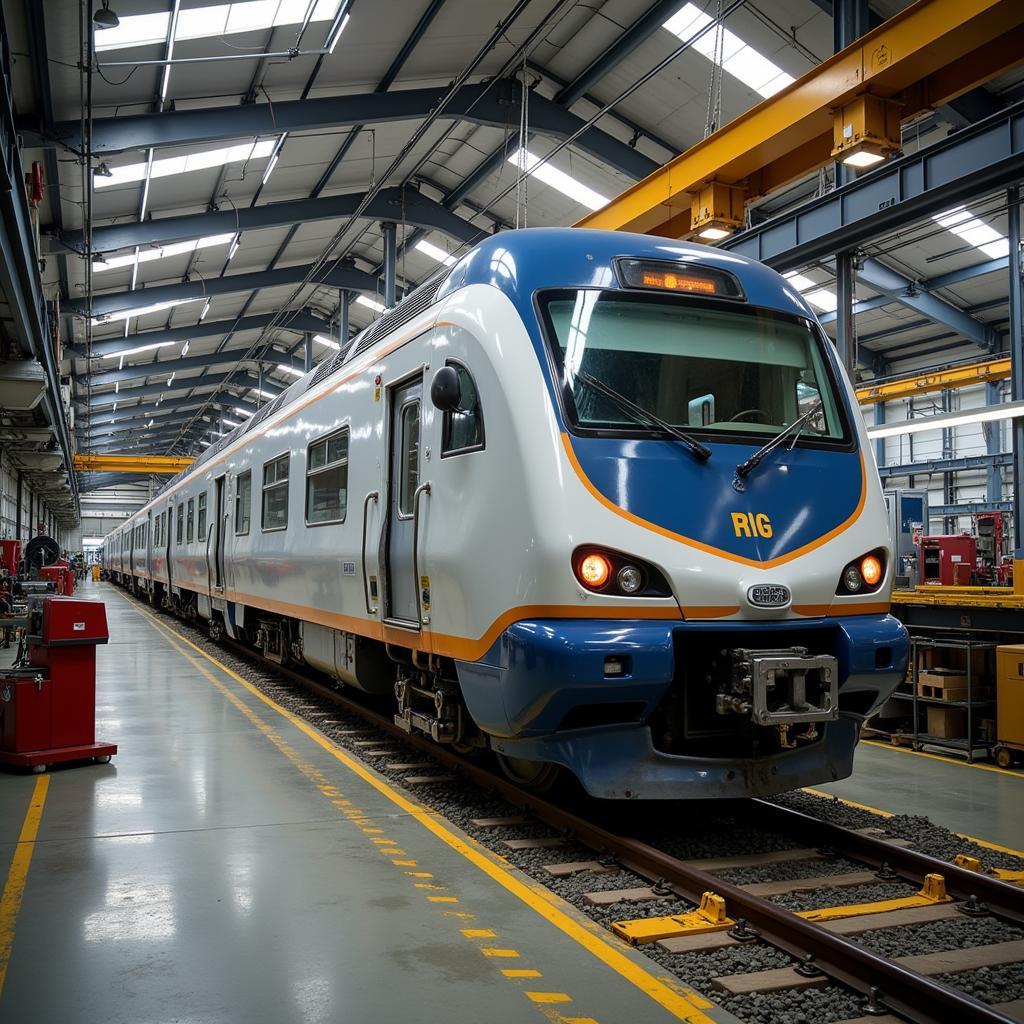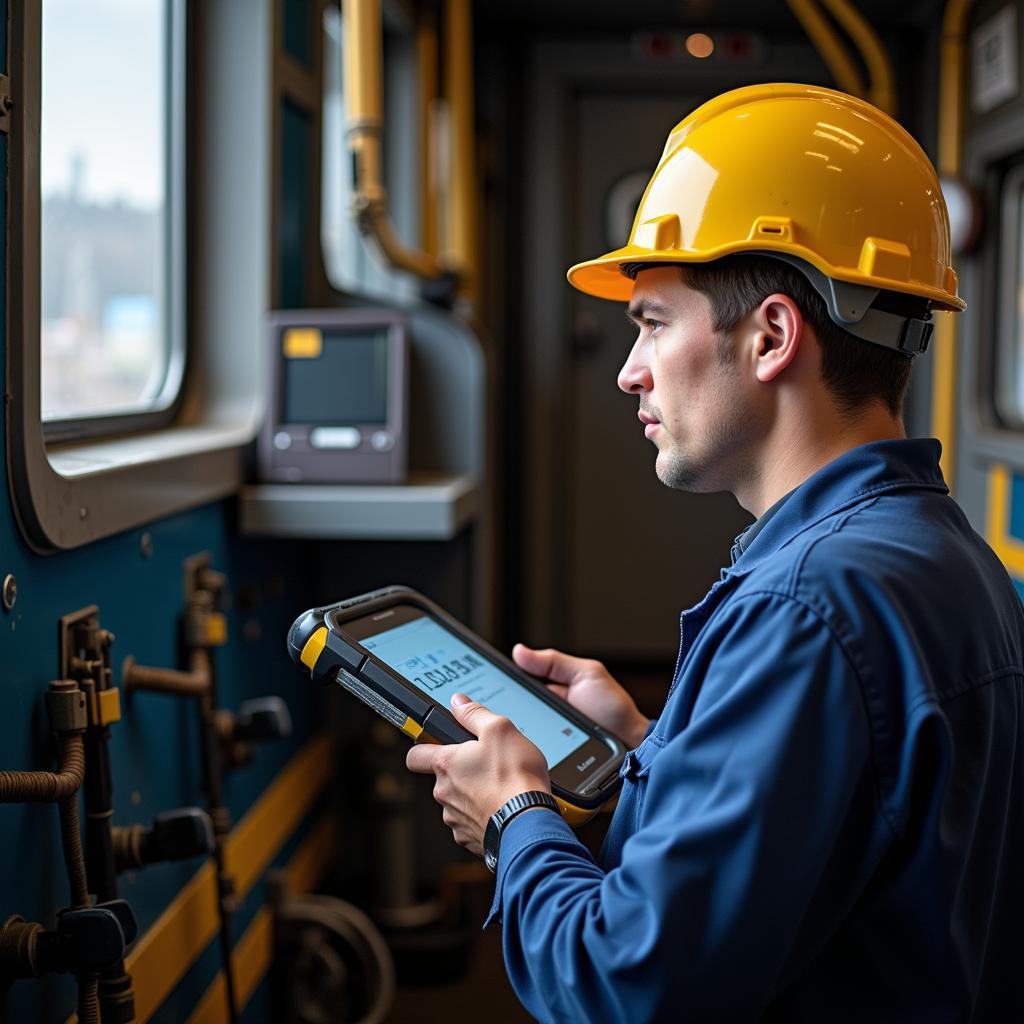Rail Car Maintenance Mechanic Jobs are crucial for ensuring the safe and efficient operation of our railways. This guide delves into the world of rail car mechanics, exploring the skills required, career paths, and the evolving landscape of this essential profession. From troubleshooting electrical systems to performing preventative maintenance, we’ll cover everything you need to know about these vital roles.
What Does a Rail Car Maintenance Mechanic Do?
Rail car maintenance mechanics are the backbone of the railway industry. They inspect, maintain, and repair all types of rail cars, from passenger trains to freight locomotives. Their responsibilities are diverse, requiring both mechanical aptitude and problem-solving skills. These skilled professionals ensure that rail cars meet safety standards and operate smoothly, minimizing downtime and maximizing efficiency.
Key Responsibilities of Rail Car Mechanics
- Inspecting mechanical components such as brakes, wheels, and couplings
- Troubleshooting and repairing electrical systems, including lighting and control panels
- Performing preventative maintenance, including oil changes, lubrication, and filter replacements
- Welding and fabricating metal parts
- Using diagnostic tools to identify and resolve mechanical and electrical issues
- Adhering to strict safety regulations and procedures
 Rail Car Mechanic Inspecting Brakes
Rail Car Mechanic Inspecting Brakes
Skills and Qualifications for Rail Car Maintenance Mechanic Jobs
Landing a rail car maintenance mechanic job requires a specific set of skills and qualifications. Employers often seek candidates with a combination of technical expertise and practical experience. While a formal education isn’t always mandatory, vocational training or an apprenticeship significantly enhances your job prospects.
Essential Skills for Rail Car Mechanics
- Strong mechanical aptitude and problem-solving skills
- Knowledge of electrical systems and troubleshooting techniques
- Proficiency in welding and fabrication
- Ability to read and interpret blueprints and schematics
- Familiarity with safety regulations and procedures
- Excellent communication and teamwork skills
Career Paths in Rail Car Maintenance
Rail car maintenance offers diverse career paths, with opportunities for advancement and specialization. Starting as an apprentice or entry-level technician, you can gain experience and progress to senior mechanic roles or supervisory positions. With further training and certifications, you can specialize in areas like electrical systems, diesel engines, or HVAC systems.
Advancement Opportunities for Rail Car Mechanics
- Senior Mechanic
- Supervisor
- Inspector
- Trainer
“The rail industry is constantly evolving,” says John Smith, a veteran Rail Car Maintenance Supervisor. “Staying updated with new technologies and regulations is key to career growth.”
The Future of Rail Car Maintenance Mechanic Jobs
Rail car maintenance is undergoing a transformation with the advent of new technologies. Automation, advanced diagnostics, and predictive maintenance are changing the nature of the work. While these advancements enhance efficiency and safety, they also demand new skills from rail car mechanics.
Adapting to the Changing Landscape
- Embracing new technologies, such as sensor technology and data analytics
- Developing skills in predictive maintenance and troubleshooting complex systems
- Continuing education and training to stay current with industry trends
 Modern Rail Car Maintenance Facility
Modern Rail Car Maintenance Facility
Finding Rail Car Maintenance Mechanic Jobs
Searching for rail car maintenance mechanic jobs requires a strategic approach. Online job boards, company websites, and industry associations are excellent resources. Networking with professionals in the field can also lead to valuable opportunities.
Tips for a Successful Job Search
- Tailor your resume and cover letter to highlight relevant skills and experience
- Prepare for interviews by researching the company and the specific role
- Showcase your passion for the industry and your commitment to safety
- Network with industry professionals and attend career fairs
“Finding the right job is about showcasing your skills and demonstrating your passion for the work,” says Maria Garcia, a Lead Rail Car Mechanic at a major railway company.
Conclusion
Rail car maintenance mechanic jobs play a vital role in keeping our railways running smoothly and safely. These professionals possess a unique blend of technical expertise, problem-solving skills, and dedication to ensuring the efficient operation of our transportation systems. From inspecting brakes to troubleshooting electrical systems, rail car mechanics contribute significantly to the smooth functioning of the rail industry. If you are looking for a challenging and rewarding career, exploring opportunities in rail car maintenance could be the perfect fit. Contact AutoTipPro at +1 (641) 206-8880 or visit our office at 500 N St Mary’s St, San Antonio, TX 78205, United States for more information.
 Rail Car Mechanic Using Diagnostic Tools
Rail Car Mechanic Using Diagnostic Tools
FAQs
-
What is the average salary for rail car maintenance mechanics? Salaries vary depending on experience and location, but the average is competitive within the skilled trades sector.
-
What are the typical working conditions? Rail car mechanics often work outdoors in various weather conditions, and may be required to work shifts.
-
What are the educational requirements? While a high school diploma or equivalent is often sufficient, vocational training or an apprenticeship is highly recommended.
-
What are the career advancement opportunities? Mechanics can advance to senior roles, supervisory positions, or specialize in specific areas like electrical systems or diesel engines.
-
Are there any certifications available for rail car mechanics? Yes, various certifications can enhance your career prospects and demonstrate your expertise.
-
What are the physical demands of the job? The job can be physically demanding, requiring lifting, bending, and working in confined spaces.
-
What are the key personality traits for success in this field? Strong problem-solving skills, attention to detail, and a commitment to safety are crucial for success as a rail car mechanic.






Leave a Reply